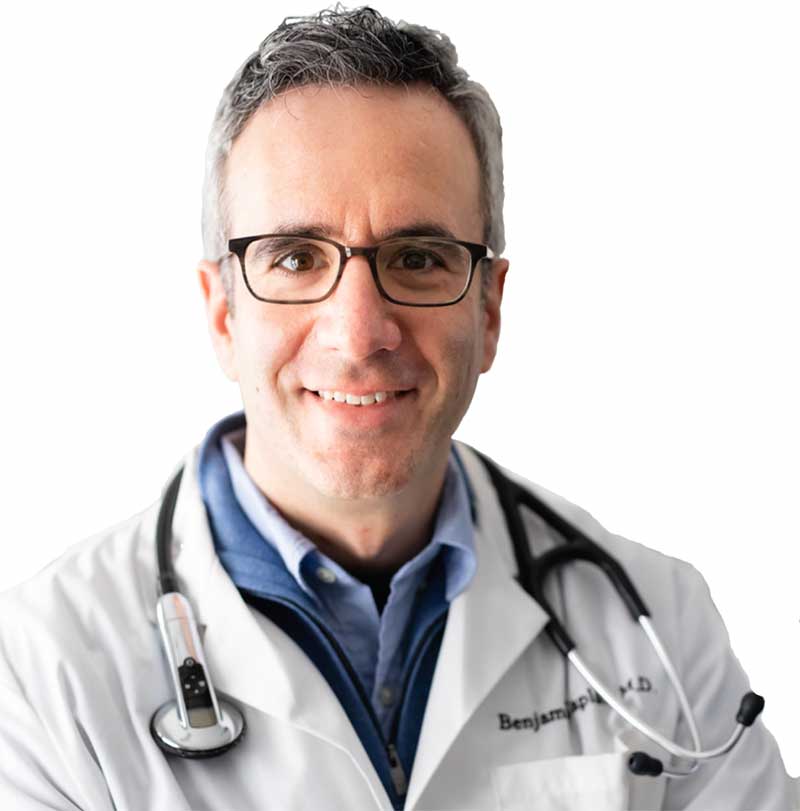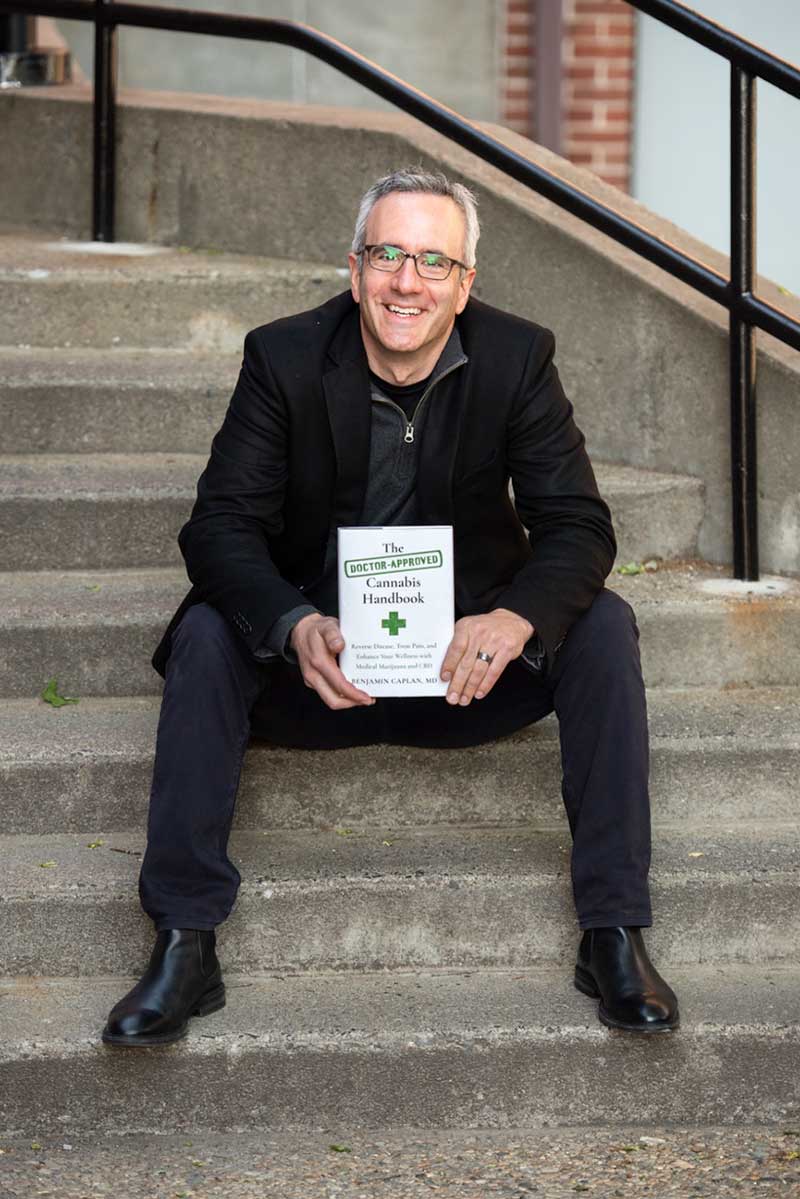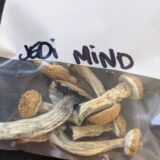
Like many physicians, Dr. Benjamin Caplan learned about cannabis as medicine from his patients. When they began sharing they were getting more relief for their ailments from cannabis than the pharmaceuticals he was prescribing; he became frustrated with the limited help received from the pharmaceutical industry. Yet, he was intrigued and eager enough to learn about the plant to help his patients in any way he could.
After all, that’s an oath doctors take. They don’t take an oath to support the bottom line of the global pharmaceutical industry. In the U.S. and the U.K., doctors take a variation of a Hippocratic Oath, an ancient Greek oath based on ethics and confidentiality, to cause no harm or hurt and to prescribe only beneficial treatments to the utmost of their power and judgment.
Never hesitating to trust his patients, Dr. Caplan went all-in, learning everything he could about a plant he understood as having no medicinal value, according to the U.S. Government.
He certainly didn’t learn about the endocannabinoid system (eCS) in medical school, the biological system that accepts and distributes beneficial plant compounds throughout all our biological systems, keeping us in homeostasis – or a place where illness cannot dwell.
The eCS wasn’t realized until the 1990s, with just a fraction of universities mentioning it in its curriculum. But once you know its efficacy in distributing beneficial plant compounds throughout the body, its healing and preventive powers can’t be denied.
Cannabis Kills
That’s what Dr. Caplan grew up thinking about the plant. The son of medical professionals, he followed his parent’s lead, graduating from Williams College in 2003, entering Tufts Medical School in 2010, completing a Family Medicine residency at Boston University School of Medicine in 2013, and becoming Board Certified in Family Medicine in 2014, with privileges at many Boston area hospitals.
Caplan began researching cannabis and practicing clinical care in the same year. Since then, he openly admits to dawning a green cape as a visionary in cannabis medicine – though he jests that his wife prefers “head in the clouds.”
Indeed, he debunked any thoughts of the plant being dangerous. On the contrary, he found it beneficial enough to expound on his knowledge and confidence in the plant to teach others.
Ever prolific, the good doctor found six ongoing ventures and two successful exits, including selling a leading cannabis technology firm acquired by Akerna in 2020.
“Besides consultations, I’m launching a radio/podcast soon to educate my audience who might prefer auditory learning.”
His CED Clinic and subsequent CED Foundation offer a wide range of services from geriatric to pediatric patients, with consultations available locally out of his Needham, Massachusetts office, and globally via Telemedicine (an online platform).
Seeing a need for more education on cannabis as medicine in general, Caplan went further and developed an A.I. chatbot to translate complex scientific information into more understandable terms.
“Through a chat interface, users can ask questions and receive information directly from primary literature sources and expert knowledge, excluding non-expert input often found in mainstream language models,” he detailed.
Caplan is eager to teach about the cornucopia of benefits of a plant he never had the opportunity to learn about himself. And this is refreshing, as most doctors leave medical school knowing what they know, never opening the door to anything alternative – and indeed, not a plant that has been stigmatized nearly beyond recognition.
To give an idea of how much the cannabis plant has been stigmatized, as I write, it’s being reported that psilocybin mushrooms are garnering more respect and acceptance than cannabis. It seems that decades of plant propaganda might take longer to dismantle.
From the introduction of his handbook, “I set out to create my own data set of user experiences to codify the clinical results I was witnessing. I began to interview doctors across the country where medical cannabis was legalized. And when it became legal in Massachusetts, where I practice, I put out my shingle as a physician who specializes in medical cannabis.”
Knowing that his peers judged him, he knew they thought of him as a sellout – never believing that cannabis therapies were a legitimate path in medicine. But he was undeterred in his truth. After all, he was gifted to be able to witness its healing powers firsthand by his patients.
The Good Book
Dr. Caplan’s book is broken down into two parts, first with a comprehensive overview of the cannabis plant, how it affects your health, and its many healing properties – noting his thoughts on cannabis either reversing disease or managing symptom relief.
Now, the phrase “reversing disease” had this writer stopped dead in her tracks, as not many people (let alone doctors) realize the plant’s strength in putting serious ailments into remission, but Dr. Caplan goes there with confidence.
The second part of the book shows how cannabis can be integrated into a personalized treatment protocol, with illnesses and conditions broken down in terms of how cannabis can help. This statement also surprised me, as most doctors have no idea how to use cannabis in tandem with other treatments, let alone how to replace them.
Broad categories of ailments are listed, such as mental health, dementia, pain, gastrological issues, sexual health, cancer, and end-of-life.
Each subject is intriguing and shows how much Dr. Caplan understands what the plant can do.
“I’ve observed that people who don’t find success with cannabis are few and far between,” he states. “All you need is a sense of curiosity and a little bit of patience. With the right guidance and first-rate products, your quality of life and sense of well-being will improve along with your health.”
This statement is huge for anyone to realize about the plant, but for a doctor to clearly understand that there’s not much the plant can’t do is a wonder. And this writer is grateful for his understanding.
Chapter 1: The Cannabis Plant
The fact that Dr. Caplan opens the first chapter with a mention of Dr. William Brooke O’Shaughessy is notable, as Dr. O’Shaughessy wrote about cannabis as medicine in the U.S. in 1839, with the plant recognized in the United States Pharmacopeia as a legitimate medical compound in 1851.
Caplan explains how adaptable cannabis is worldwide and that the environments it’s grown in add to the full compound profiles – much like grapes are influenced by a wine’s full-bodied richness.
Also welcome is the boxed section on the horticultural name of cannabis and how the slang marijuana doesn’t represent what it is: a highly medicinal and beneficial plant.
Aside from the plant’s botany fully explained, Caplan details the roughly six hundred compounds found in various cannabis plants worldwide, with prominent efficacy found in its terpenes, cannabinoids, and flavonoids.
I am grateful for the additional footnote on euphoria, confirming that the plant is not merely made up of cannabinoids or tetrahydrocannabinol (THC), the psychoactive compound, as many wrongly surmise. We can use THC as a geiger counter, but the euphoria we feel is also comprised of the effects of the terpenes and cannabinoids working together.
He also notes that our alchemy has much to do with the euphoria. We are all biologically the same, but what we do individually affects the whole.
Not every cannabis plant has the same terpenes, causing further effects. Dr. Caplan breaks down as many compounds as he possibly can, giving the reader a greater understanding of how many healing compounds the plant has.
Interestingly, there are way more flavonoids than terpenes listed in the plant’s composition, each having a specific effect. You may be elevated with the THC, but your feelings of calmness and bliss come from a combination of terpenes and cannabinoids.
Cannabis Therapies
Most who are not familiar with the healing properties of cannabis have been known to say, “It’s too good to be true,” as the plant is credited with helping with so many ailments.
But, Dr. Caplan is all too familiar with that lament and does his best to explain the differences between the way pharmaceuticals work as compared to cannabis or other plant-based therapies.
“Most pharmaceutical medicines and therapies are laser-focused on a single receptor in the body, or provide a single therapeutic molecule or act on a targeted single physiological pathway, to treat a specific muscle, organ, or symptom,” he writes. “This hyper-granular focus has habituated modern medicine to disregard the interconnectedness of the multi-system body, and it even influences how we view disparities and suffering altogether.”
Instead, he explains, “… cannabis offers a systemic recalibration that has a global impact on the body: with the right treatment, not only will your pain go away, your experience of pain will also change. This happens partly because, as a fundamental communication molecule, cannabinoids serve as a conduit across two separate body systems. Our bodies are made of separate ecosystems that occasionally interact and respond.”
In other words, the endocannabinoid system connects the dots with all our biological systems to provide optimal relief and often remission, whereas pharmaceuticals only address one issue.
And while this may appear to be miraculous and too good to be true, it’s just how plants work with our biological systems. It’s not rocket science. It’s a process the pharmaceutical industry can’t formulate – they can’t patent a whole plant for profit, and they can’t mimic the powerful healing power of hundreds of beneficial compounds coming together to keep us happy and healthy from the inside out.
Peacefulness, Comfort, Control, & Adaptability
 These are the four factors in which Dr. Caplan explains the unique abilities of the cannabis plant.
These are the four factors in which Dr. Caplan explains the unique abilities of the cannabis plant.
To surmise, peacefulness equates with relief.
“Buddhism teaches that the ultimate state of meditation is mindfulness, a state of continual presentness,” he says. “I often describe cannabis as a ‘tangible essence of medication,’ a tool that leverages an organic state of mindfulness.”
When discussing Post Traumatic Stress Disorder (PTSD) and the gift of forgetfulness, Dr. Caplan suggests that a desired feature of cannabis is forgetting, the act of stopping unwanted memories from recurring.
Comfort, or being cared for, is another positive outcome, as the plant gives focus and emotional well-being.
One of his patients used cannabis prior to physical therapy, stating it made the sessions less emotionally stressful and more physically tolerable – actually allowing her to work harder, have a better stretch, and ultimately, a shorter rehabilitation.
It is surprising to find the following passage under the “comfort” section:
“In many cases, the outcomes of cannabis therapies are better than existing traditional medical treatments,” he writes. “When used either alone or coupled with traditional medicines, cannabis therapies can ameliorate disease processes and make them less severe. Over time, they may replace your existing medication.”
He goes on to state that cannabis products can even enhance the efficacy of traditional medicine – something most doctors are unaware of altogether, adding that most pharmaceuticals come with a laundry list of adverse side effects.
While he lists the negative side effects of cannabis, none of them are life-threatening, and nearly all of them are direct side effects of THC.
It’s important to note that THC is the only controversial compound within the plant that we as humans raised to the heights we have today. In this respect, the negative side effects can be squarely placed on the fault of a non-therapeutic dose of THC.
We in the cannabis caregiving space are already aware of these findings, but hearing a doctor on these points is a much-needed gift.
Control comes into play due to the plant’s adaptability and the many ways to deliver it and its myriad compounds into our biological systems.
“The reason that control is available is because of the inherent safety profile of cannabis,” he writes. “We don’t have strong evidence that accidentally taking too much can permanently hurt you. The same is not true for other pharmaceuticals, so they provide specific instructions on how much to take to avoid an ill effect.”
It is important to note Dr. Caplan says that while cannabis can be abused, he’s found that the majority of patients who mistakenly take too much suffer temporary consequences of their own doing and learn quickly not to repeat it.
Finally, adaptability comes into play because the plant can help us adapt to life and dial back the difficulty of living with discomfort. It can redirect our focus while lessening pain and increasing feelings of pleasure.
“The reason cannabis is so effective is that it has adaptogenic properties: it is a nontoxic plant that improves the body’s ability to resist multiple forms of stress – including physical, chemical, and biological sources, by increasing its ability to adapt and survive,” he declares.
Getting Past the Stigma
Right out the gate, the good doctor dispels the myth that cannabis will not make you psychotic, it isn’t addictive or a gateway drug, it’s nothing like synthetic sleep aids, it’s cheaper than pharmaceuticals, it’s the best de-stresser, it’s a superfood that doesn’t need to be smoked to see benefits, and it does not make you stupid!!
The book details many ailments and subsequent help, debunking myths and offering sound advice on the many healing benefits of the plant, including a bit on being endocannabinoid deficient.
This is huge, as we’ve been led away from the garden while simultaneously adding empty foods and synthetic pharmaceuticals for decades. Many feel (as I do) that we are indeed deficient in beneficial plant compounds, causing many of our modern-day ailments – many of them fatal.
Dr. Caplan specifically cites gastrointestinal issues as a starting point, as that’s where much of our problems come from – starting with our empty diets, legal alcohol, and lack of movement.
Simple ailments easily remedied from the garden. My hashtag is #notjustcannabis, as many plants with complex compound profiles mimic the healing benefits of cannabis.
I like to say that cannabis was my gateway drug to other healing plants, as I’ve added chamomile to calm, rosemary for clarity, and stinging nettles for bronchial issues over the years since using cannabis daily.
Much gratitude to Dr. Caplan for showing us just how vital the healing compounds of cannabis are. May this information dispel myths and lead many more into the garden for health and happiness.
As I’ve written many times prior, when they told us to eat our fruits and vegetables, they should have scared the shit out of us. They should have told us it’s a matter of life and death because it is. And no manmade little synthetic pill can ever replace the garden’s goodness.

















